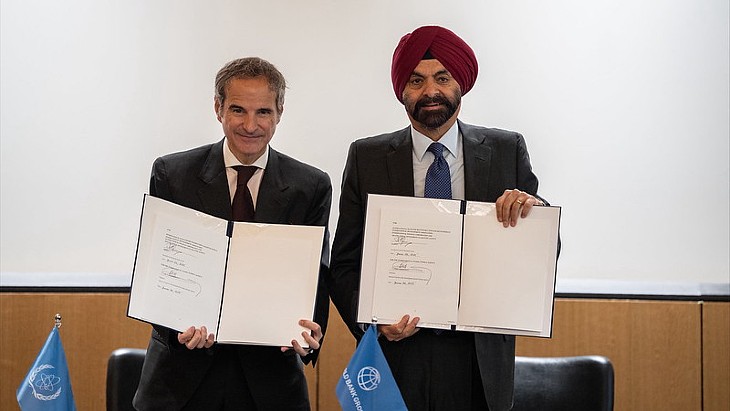MCA calls for end to uranium discrimination
.jpg)
The policy paper, Mining and the EPBC Act nuclear action trigger: A review of its rationale and operation, was prepared by environmental assessment expert Lachlan Wilkinson of JBS&G Australia Pty Ltd. It finds that environmental impacts from uranium mining are generally the same as for mining other commodities, and uranium's "special treatment" under the Act - which reflects a governmental view that it carries special risks that warrant a higher level of regulation than other types of mining - is not warranted.
There are only two risks that distinguish uranium mining from other commodities, the report finds: nuclear proliferation and radiation safety. Nuclear proliferation is dealt with through a number of international agreements and legislation, including the Nuclear Non-Proliferation Safeguards Act of 1986. Radiation safety - which is not unique to uranium mining, and requires management in mining other commodities such as mineral sands - is one of the most heavily regulated aspects of the mining industry, with national guidance based on international best practice and well-established regulatory systems at the state level.
The inclusion of uranium mining and milling as a "nuclear action" under the EPBC is therefore not needed to address these risks, the report says, and there is a "strong case" for it to be removed from the "nuclear action" trigger. The government should "at the very least" amend the Act and its regulations so the legislation would only apply if the radiological aspects of a proposed action are likely to have a significant environmental impact, or to limit the assessment of uranium mining operations only to the radiological aspects of the proposal rather than a whole environmental assessment.
"With the second statutory ten-year review of the EPBC Act due next year, it's time to end the Act's discrimination against uranium which is adding unnecessary delay and cost to uranium projects and handicapping Australia's world-class uranium industry," MCA National Director Daniel Zavattiero said today. "Under the EPBC Act, two mines with identical impacts are treated differently merely because of the commodity that is being mined.
"Australia can reform its treatment of uranium under the EPBC Act - which requires that all uranium projects obtain federal environmental approval, regardless of size or impact - without any additional environmental cost and allow the industry to prosper and create more jobs at home, while producing fuel for zero emissions power generation abroad," he said.
"No federal environmental conditions in relation to the uranium projects approved to date have related to uranium-specific issues that were not already covered by the state approval process," Zavettiero added. "The EPBC Act should be amended to remove the handicap on our world-class uranium producers, developers and explorers who want a greater share of growing global demand."
_49098.jpg)
_57190.jpg)
_70526.jpg)
_75453.jpg)





..._58412.jpg)

